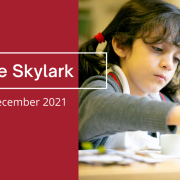Yesterday morning Upper Prep put on a marvellous class assembly, demonstrating some of the wonderfully enriching bird-themed learning that has been running through many of their curriculum subjects this term.
Art appreciation
The class described some things they had learned about John James Audubon (1785-1851) who became famous for his beautiful paintings of American birds 200 years ago.
Art
The pupils showed the beautifully colourful and detailed bird paintings they had created; their schoolmates correctly identified the birds that were represented: Kingfisher, Blue tit, Robin, Blackbirds, Magpie, and Tawny owl.
Nature Study
Upper Prep learned about the difference between soft-billed birds and hard-billed birds during their readings of Adventures Into Nature. They noted that the terms have to do with the type of food the birds eat, not the hardness or softness of their bills!
Nature walks
On nature walks, the pupils have been enjoying bird spotting, and recorded their findings using tally lines. They shared their charts that detailed the birds they had seen in different locations.
Writing
The children have been listening to information about birds and writing down some bird facts. Some of the pupils shared the bird fascinating facts they had learned. For example, a blue tit will often eat upside down and ducklings can swim straight away after hatching!
Literature
The class have been reading Aesop’s fables, so in science they decided to test one fable called ‘The Crow and the Pitcher,’ to see if water would rise up inside the jug by dropping stones into it. The water did in fact rise. (Eureka!)
Drama
Finally, Upper Prep delivered a terrific performance of a story they have been working on in Drama, an Inuit legend called ‘Why the Robin Has a Red Breast.’
Each of the Upper Prep children should be proud of all that they have learned, and how well they shared their learning with their schoolmates!





